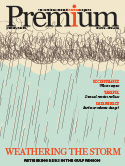EIOPA publishes supervisory statement on inflation
The European Insurance and Occupational Pensions Authority (EIOPA) published recently a Supervisory Statement on inflation, which addresses inflation-related issues in (re)insurance from a prudential perspective.
The statement supports consistent Solvency II calculations by raising awareness of the main impacts of higher inflation that (re)insurance undertakings should consider. It focuses on the impact of inflation on technical provisions, on investments, on solvency capital requirements and other elements.
As a result of the past 20 years’ low inflation environment, methodologies that do not explicitly take inflation into account, have become frequent. However, estimates based solely on historical data may lead to an underestimation of technical provisions under the current economic environment, especially regarding the best estimate valuation. Undertakings are therefore expected to reassess whether their inflation expectations in the technical provisions are still realistic given current market circumstances also considering the nature, scale and complexity of the risks.
Furthermore, inflation may also have an impact on the value of some assets. Entities, especially those using alternative valuation methods for investments and exposed to inflation, should assess whether the valuation methods and/or its parameters should be adjusted considering the current level of inflation.
Inflation may, furthermore, have an impact on solvency capital requirements. An assessment of the situation and some adjustments may therefore be necessary.
Undertakings should also consider the direct or indirect effects of inflation on other elements such as risk management systems. All relevant assessments performed by undertakings should also be appropriately reflected in their own risk and solvency assessment (ORSA).
National competent authorities are expected to monitor undertakings’ assessment of the impact of inflation on the elements mentioned above and any measures taken as a follow-up as part of the regular supervisory review process.





































